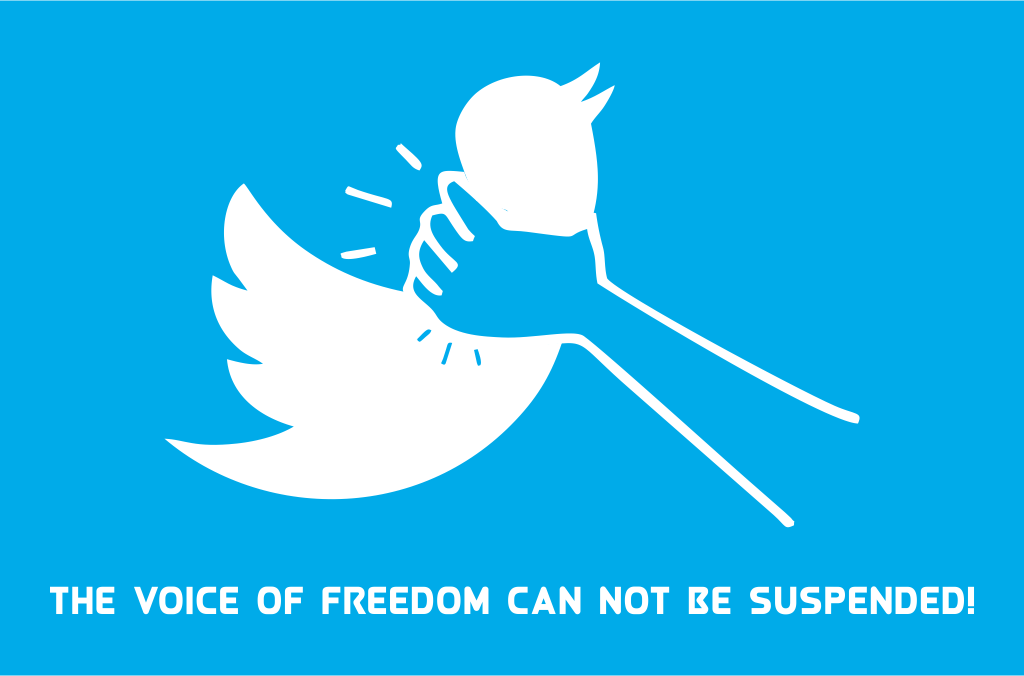[By Rachael Eni]
If you think the quote “There is freedom of speech, but I cannot guarantee freedom after speech” attributed to Idi Amin is ludicrous, you probably haven’t heard of the happenings in Nigeria over the last two months. Like many other Nigerians, I didn’t fully understand the gravity of the government’s announcement banning social media platform, Twitter, until I was unable to access it shortly after midnight on the 5th of June. But even then, doubts still lurked in my mind, for it was impossible to believe the government is capable of flagrantly trying to stifle freedom of speech in the manner it went about banning Twitter. However, if there are any more doubts about the government’s intent, I assure you that events of recent months have totally cleared them.

It’s high time we drop the cloak of pretence and address the issue squarely. We are no longer in a democracy and are spiralling quickly into a dictatorship. But how did we arrive here?
According to Carl Sagan, “You have to know the past to understand the future.” It isn’t surprising what a trip down memory lane has revealed – this is not the first time the man in charge has tried to stifle the press and free speech. His regime between 1983-1985 was marked by a severe crackdown on civil liberties and freedom of speech under the guise of protecting the nation from instability. With the enactment of Decree 4, he forbade any journalist from reporting information considered embarrassing to any government official. He once stated, “We will not allow irresponsible views capable of creating trouble or instability in whatever form to be published by these private newspapers.”
Sounds familiar? It’s mind-boggling how we ever believed the ‘converted democrat’ narrative.
This is, however, not the time to apportion blame but to fully comprehend the implications of this move by the federal government on our fragile democracy and our ability to criticise acts of impunity by the government and its agents, assess its policies, expose corruption and generally hold leaders accountable when they err.
But first, let me take a detour to events leading up to the infamous Twitter ban.
On the 5th of June, the Nigerian government officially placed an indefinite ban on the social network platform, Twitter, after it deleted tweets from the Nigerian president referencing the Nigerian Civil War and warning the Igbo people of a potential repeat owing to the ongoing insurgency in the Southeast. The government claimed that the deletion of the President’s tweets did not play a role in their decision but it was ultimately “the persistent use of the platform for activities that are capable of undermining Nigeria’s corporate existence” that spurred their decision. Two months later, the Twitter ban has not been reversed.
But what is the government really afraid of?
It is most definitely not the fact that the platform has been used to help locate missing people nor is it because it has been a source of livelihood for many youths. The fear lies in the powerful mobilising possibility of the microblogging platform. Ironically the same government has, on numerous occasions, leveraged the platform to campaign, and agencies like the NCDC have used it to provide real-time updates on COVID-19. Twitter arguably has, among its members, the most vocal and politically active segment of the population. Little wonder the #EndSARS protest garnered 48 million tweets in 10 days. Beyond the ego trip and the sense of utmost power they derive from having us all at their mercy lies the government’s understanding of the immense power of social media and the troubles it could pose for its administration.
Even the damning statistics of the ban’s impact on the economy and the high unemployment levels it has been predicted to cause is not enough to deter the government or force a change in its stance. Nigeria has, over the course of two months, lost $366.9 million, according to British firm Top10VPN.
However, in a democratic state, freedom of speech which is enshrined into the 1999 Constitution forms the basis of all freedoms and it is integral to political rights. Nigerians have a right to participate in governance and government. Nigerians have the right to voice out their opinions, concerns and disappointment in light of the deteriorating state of the nation in virtually all facets.
As with the nature of most policies by the government, the Twitter ban could potentially be setting the stage for a more severe reality – a total clampdown of the media and press in Nigeria. Already the Minister of Information has threatened to ban other social media platforms if they do not register in Nigeria as a business concern. But we know what registration entails – they are most likely going to be worse off since they would be under the full control of a government that has a history of regulating media reportage.
A recent instance is the clampdown of the media reportage during the #EndSARS protest where the government consistently concealed crucial information and withheld details on the attack on citizens. They further released a set of guidelines stipulating how traditional media outlets were to cover the protests making digital outlets like Twitter the only recourse for real-time information and unfiltered updates.
And this is why we can no longer afford to be silent on issues like this. Ahead of the 2023 general elections, the heavy censure of social media is very worrisome. We should be scared and rightly so. Regardless, we cannot afford to throw in the towel. We cannot allow them to distort reality and determine what view of the internet we can get. We must keep making our voices heard, whatever it may take. In the famous words of Anibal Barca, “we will either find a way or make one.”

Rachael Eni is a researcher and editorial analyst based in Lagos.
